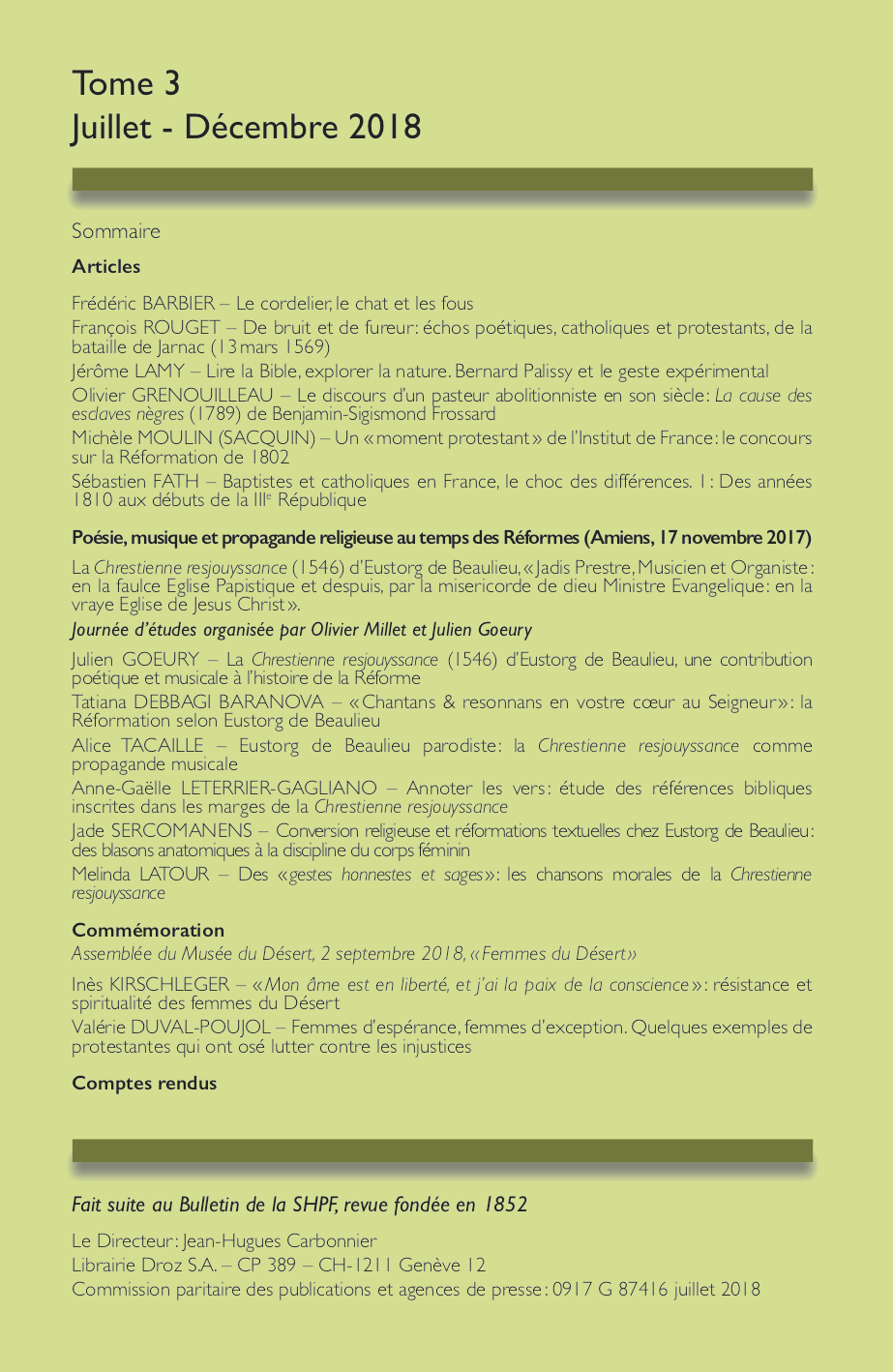« Chantans & resonnans en vostre cœur au Seigneur » :
la Réformation selon Eustorg de Beaulieu
Abstract
This article sets out to investigate Eustorg de Beaulieu’s main objectives in publishing his song collection entitled La Chrestienne Resjouyssance (1546). The analysis of this editorial object and the reconstruction of the actions which Beaulieu undertook to have this book issued in Geneva show that it represented an attempt for him to integrate, at least symbolically, the group of ministers of the early Reformation to which Matthieu Malingre belonged. Beaulieu, who was a little-known figure in Reformed circles ordained as minister of a small country parish following a rather superficial theological training, sought to obtain greater recognition by putting his musical and poetic skills at the service of the conversion movement. Another aim in publishing La Chrestienne Rejouyssance was to announce his allegiance to a certain ideal of the Reformation as a heroic and collective movement as it had been expressed by ministers who began in those years to take a certain distance from Calvin. Unfortunately, Beaulieu’s conflict with leading Calvinist Reformers like Pierre Viret and Guillaume Farel, as well as a number of personal setbacks, prevented him from benefiting from the publication of his work. Nevertheless, his songs did enjoy some degree of success, as La Chrestienne Rejouyssance circulated in France, and, some twenty years later, several songs were incorporated into the corpus of Reformed songs that underwent frequent printings in Geneva.
